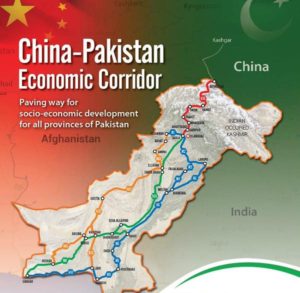by James M. Dorsey 31 October 2018
Pakistani Prime Minister Imran Khan lands in Beijing on November 3, the latest head of government to seek a renegotiation of commercial terms and/or focus of projects related to China’s infrastructure and energy-driven Belt and Road initiative. He follows in the footsteps of his Malaysian counterpart, Mahathir Mohamad has suspended US$26 billion in Chinese-funded projects; while Myanmar is negotiating a significant scaling back of a Chinese-funded port project on the Bay of Bengal from one that would cost US$ 7.3 billion to a more modest development that would cost US$1.3 billion in a bid to avoid shouldering an unsustainable debt. China has also witnessed pushback and rising anti-Chinese sentiment in countries as far flung as Kazakhstan, Nepal, and Denmark.
Khan’s insistence on expanding the focus of the China Pakistan Economic Corridor, a US$45 billion plus Belt and Road crown jewel, to include agriculture, manufacturing, and job creation takes on added significance as Pakistan seeks an approximately US$8 billion International Monetary Fund (IMF) bailout to help it avert a financial crisis and discusses with Saudi Arabia investments of up to US$10 billion in investments that would be separate but associated with CPEC.
In doing so, Khan is manoeuvring multiple minefields that stretch from likely demands by the International Monetary Fund IMF and the United States for transparency on the financial nuts and bolts of CPEC projects to compliance with requirements of the Financial Action Task Force (FATF), an international anti-money laundering and terrorism finance watchdog that has threatened to blacklist Pakistan, to managing relations with Saudi Arabia at time that the kingdom’s international standing hangs in the balance as a result of the killing of journalist Jamal Khashoggi in the Saudi consulate in Istanbul.
Read full article in attachment or at http://studies.aljazeera.net/en/reports/2018/10/imran-khan-cpec-diplomacy-remodelling-trade-politics-pakistan-iran-saudi-arabia-chin-181029102924737.html

